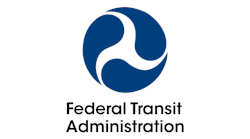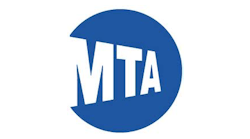OP-ED: City of Glen Cove, N.Y., owes Washington, D.C., $16.6 million for incomplete ferry project
The failure to initiate the new ferry service as recently announced by the city of Glen Cove, N.Y., Mayor Pamela Panzenbeck will result in the city having to pay back the Federal Highway Administration (FHWA) for $16.6 million in grant funding. These dollars were approved in 2003 for construction of a new ferry terminal. It was to support a new ferry service from Glen Cove to the downtown Manhattan financial district ferry Pier 11.
Based upon my previous experience on management of similar capital ferry improvement projects funded by the Federal Transit Administration (FTA) for the New York City Department of Transportation Staten Island Ferry, along with other public and private ferry operator capital improvement projects, ferry service between the city of Glen Cove to Pier 11 in the lower Manhattan financial district should have been up and running on or before 2010. Advancement of the project after receipt of the federal grant should have required no more than one year to complete the procurement process (2004) and hire a design and engineering firm, two years (2005 and 2006) for completion of design and engineering, one year for completion of the procurement process for hiring a construction contractor to build the facility (2007), two more years from start to completion of construction (2008 and 2009) and less than one year (2010) to complete the procurement process for awarding a contract to a private ferry operator to initiate service.
There is plenty of float time built into this seven-year schedule to deal with any unforseen delays during advancement at any stage of the project's progression. This information should have been documented as part of the implementation schedule contained in the approved 2003 grant. Delays should have been documented in periodic quarterly budget and milestone progress reports sent to and reviewed by both the FHWA and the New York State Department of Transportation. A cat has nine lives and the city of Glen Cove has used up all their recovery schedules since 2010 during the past 14 years.
The most recent recovery schedule called for service to begin before the end of 2023. This date came and went. Based upon my previous knowledge in management for similar ferry capital projects, it should have taken seven years or less to complete construction of any ferry terminal. Ferry service should have been up and running on or before 2010 - 14 years ago.
The Master Grant Agreement between the city of Glen Cove, the FHWA and New York State Department of Transportation, Washington, D.C., has no choice but to ask for its money back since the investment did not go into transit service as intended. The federal and state Offices of Inspector General will be monitoring both the FHWA and New York State Department of Transportation to insure they enforce the language contained in the Master Grant Agreement, which includes the return of the funds for a project that did not meet its intended purpose.
U.S. Rep. Tom Suozzi (D-NY-3) and Sens. Chuck Schumer and Kirsten Gillibrand (D-NY) are not transit priests. They can not offer absolution to the city of Glen Cove in not paying the $16.6 million back to the federal government. Suozzi, Schumer and Gillibrand can't use the powers of their office to make FHWA or New York State Department of Transportation an offer they "can't refusezzz" and forgive the $16.6 million.
Several generations of both FHWA and New York State Department of Transportation employee, their supervisors and New York State FHWA and New York State Department of Transportation Regional Administrators all took the same oath of office as I did. As federal government employees, we are legally responsible to prevent any waste, fraud or abuse of all any grant dollars administered. Clearly, not obtaining the ferry service, which was dependent upon a private operator, has not taken place. A ferry terminal sitting there not being used for its intended purpose clearly falls under the category of waste, fraud and abuse of federal dollars.
Since 2003, several generations of FHWA, New York State Department of Transporation, city of Glen Cove Mayor's, Comptrollers, Chief Engineer and each entities staff responsible for oversight and management of this project have come and gone. The buck stops on the current desks of the FHWA, New York State Department of Transportation and Glen Cove Mayor Panzenbeck in final resolution for repayment of the $16.6 billion.
To attract a private operator to begin this service, the city of Glen Cove should consider these two options:
- Reduce both the fare and operating cost by terminating the service at the New York City Economic Development (NYCEDC) Private Ferry Operators Astoria, Queens dock. The current NYCEDC Private Ferry fare is $4.50.
- Establish a discounted two-way fare for passengers transferring between the two systems. The NYCEDC Private Ferry system would provide more connections than the original proposed Downtown Manhattan Financial District Pier 11. NYCEDC runs six ferry routes, serving 24 stops primarily along the East River in the Bronx, Queens, Manhattan and Brooklyn. This might attract more riders to Manhattan and from New York City to Glen Cove. Adding on an additional stop to serve LaGuardia Airport could also add customers.
In the 1960s, Master Builder Robert Moses wanted to build either a bridge or tunnel connection the north shore of Long Island to either Westchester or Connecticut. It never happened. Five years ago, former New York Gov. Andew Cuomo had New York State Department of Transportation conduct a new feasibility study to do the same. The estimated cost between $30 to $50 billion, depending upon the location at both ends, resulted in this idea being placed in the back burner.
Today, eastern Queens and Nassau residents have to drive to either a ferry from Port Jefferson to Bridgeport Connecticut or one hour farther east to Orient Point for a ferry to New London, Conn. The other alternative is travel via either the Throgs Neck or Whitestone Bridge, Bronx thru Westchester before reaching the Connecticut City Line.
The city of Glen Cove should reach out to a city in Westchester Couty, Stamford, Bridgeport or another Connecticut city on Long Island Sound to consider partnering for establishment of a new ferry service. They could issue a joint request for proposals and agree to both provide operating assistance to the private ferry operator. So long as a ferry service begins, I'm sure both the FHWA and New York State Department of Transportation would be willing to accept either concept for a new location of than the original downtown Pier 11.
Another alternative is for the city of Glen Cove to purchase its own new or used ferry boat and operate the service with its own employees.
New York State Assembly member Charles Levine and Sen. Steven Rhodes (R-NY) have annual access to their share of several hundred million in member item funding to finance projects in their respective districts that might benefit their constituents. What funding have they delivered to date for the city of Glen Cove ferry project? Suozzi has access to billions in federal discretionary member item funding programs, including those under the FHWA and FTA. What funding has he delivered to date for the city of Glen Cove ferry project?
Since the city of Glen Cove has a limited budget and cash reserves, it would be a major burden to pay back the $16.6 billion out of the current or next year's adopted budget. It may be necessary to float a 20-year bond to raise the $16.6 billion. Even with interest on the bond, the city could end up paying the bond holders less than one million annually during the 20-year period.
Once paying back the FHWA and New York State Department of Transportation, the city of Glen Cove is free to do what they want with the facility. Why not afford private ferry operators who offer site seeing, lunch, dinner and wedding cruises on Long Island Sound an opportunity to rent this facility? The same holds true for fisherman and small cargo ships. Revenues generated could help offset the annual bond service payments.
New York Gov. Kathy Hochul has placed congestion pricing on pause. If it is actually implemented at a later date, why not ask to be included in the program? The Long Island Rail Road (LIRR) is promised 10 percent or 1.5 billion annually in bonding money generated by congestion pricing.
Before the end of 2024, Amtrak will be removing one of four East River tunnels one at a time. This is to facilitate major reconstruction due to severe flooding due to Super Storm Sandy in 2012. The LIRR will have to combine and cancel rush hour trains due to only three tunnels being available.
A new LIRR service plan, which has yet to be released, will prioritize which branches may see reduced service. This is usually based on ridership demands. Both the Oyster Bay and West Hempstead branches have fewer riders than the other nine branches.
Assuming there will be a reduction in the number of trains service the Oyster Bay branch, the City of Glen Cove should consider asking the LIRR for some form of financial assistance to help subsidize what could serve as a substitute ferry service. The LIRR could pass along a very small portion of the anticipated $1.5 billion annual congestion pricing revenue.
It is time to bite the bullet and resolve this issue in 2024. Do not kick the can down the road for the next mayor to resolve as predecessors have done.

Larry Penner
Larry Penner is a transportation advocate, historian and writer who previously served as a former director for the Federal Transit Administration Region 2 New York Office of Operations and Program Management. This included the development, review, approval and oversight for billions in capital projects and programs for New Jersey Transit, New York Metropolitan Transportation Authority, NYC Transit bus, subway and Staten Island Railway, Long Island and Metro North railroads, MTA Bus, NYCDOT Staten Island Ferry along with 30 other transit agencies in New York and New Jersey.





